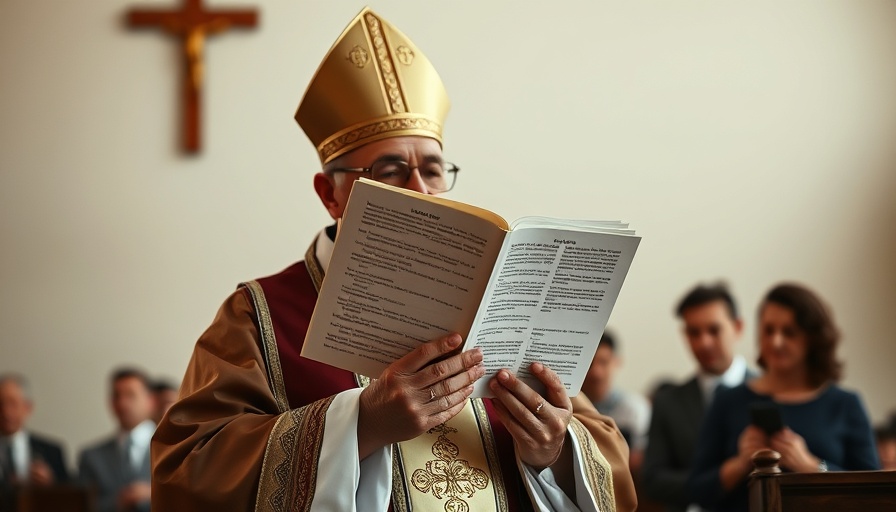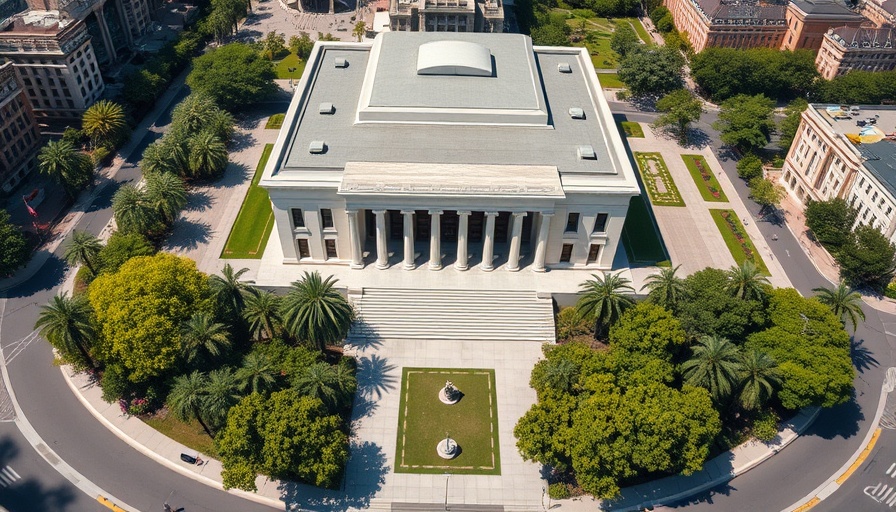
Faith Under Fear: A Historic Decision by Bishop Rojas
Bishop Alberto Rojas of the Diocese of San Bernardino has made headlines by exempting parishioners from attending Mass due to genuine fears of immigration enforcement actions. This unprecedented move emphasizes the growing intersection of faith and social justice, especially for the 1.6 million Catholics residing within the diocese's reach in Southern California.
A Religious Exemption Unseen Before
In a rare decree, Bishop Rojas stated, "Such fear constitutes a grave inconvenience that may impede the spiritual good of the faithful." Traditionally, Catholics are bound to attend Mass each Sunday and on certain holy days of obligation, with the Church teaching that missing Mass without a serious reason is considered a mortal sin. By allowing exemptions specifically related to immigration fears, Rojas not only acknowledges the emotional turmoil faced by many but also offers a compassionate response to a growing crisis affecting communities across the nation.
Unpacking the Implications for Catholic Communities
This directive from Bishop Rojas sheds light on the broader implications of U.S. immigration policies on faith-based communities. With approximately 20% of U.S. adults identifying as Catholic, many parishioners are undoubtedly impacted by fears of ICE raids. The exemption draws attention to the challenges faced by many immigrant families who may hesitate to attend worship services in fear of deportation. Allowing congregants to forgo mandatory Mass obligations under these circumstances highlights a commitment to both faith and social advocacy, setting a precedent for other bishops grappling with similar issues.
Potential Trends in Religious Leadership
The decision by Bishop Rojas may herald a shift in how religious leaders respond to pressing societal issues. This exemption could inspire further discussions about the responsibilities of the Church in advocating for marginalized groups, particularly in light of ongoing immigration debates. As faith communities reflect on their role in these discussions, we might see similar actions taken by leaders across various denominations, forging a path towards a more compassionate and inclusive environment.
Moving Forward: How This Affects You
For members of the Diocese of San Bernardino and broader communities, these developments prompt a reevaluation of how faith intersects with societal challenges. Individuals who may feel alienated due to immigration status or fear of repercussions can take solace in this directive, reaffirming their place within their faith community. As this policy evolves, it is crucial for taxpayers and active churchgoers alike to engage in conversations about the intersection of faith, social justice, and community.
As we reflect on these changes, consider how your local church or community organization can contribute to fostering inclusivity and support. Initiatives that aim to provide assistance and advocacy for vulnerable populations within faith communities can make a significant difference.
 Add Row
Add Row  Add
Add 




Write A Comment